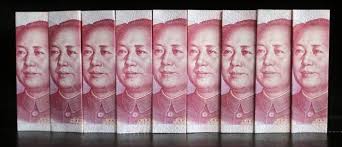Why is the Chinese economy believed to be resilient?
Why is the Chinese economy believed to be resilient? The Chinese economy is often believed to be resilient due to several factors:
Government Control and Policy Flexibility
The Chinese government has significant control over the economy, allowing it to quickly implement policies to stabilize growth. This includes stimulus measures, infrastructure spending, and regulatory interventions.
State-owned enterprises (SOEs) play a major role in the economy, and government support helps prevent major disruptions.
Diverse Economic Structure
China’s economy is diversified, with contributions from manufacturing, services, agriculture, and exports. This diversity makes it less vulnerable to disruptions in any single sector.
The country has also been shifting towards a consumption-driven model, helping to reduce reliance on exports.
Strong Domestic Market
China has a large and growing middle class, which fuels domestic consumption. This internal market acts as a buffer against external shocks, such as trade tensions.
The government has promoted initiatives to boost domestic consumption and reduce reliance on foreign demand.
Manufacturing and Export Capabilities
China is known as the “world’s factory” due to its vast manufacturing base and established supply chains. This advantage keeps its economy competitive globally, even during economic downturns.
China has also invested heavily in improving infrastructure, logistics, and technology, enhancing its role in international trade.
High Savings and Investment Rate
The Chinese population has a high savings rate, providing a cushion during economic downturns. High domestic savings have also allowed for sustained investment in infrastructure and innovation.
Government and private investments in areas like technology, real estate, and infrastructure contribute to continued growth.
Adaptability and Innovation
China has rapidly adopted new technologies, leading to the growth of tech giants in areas like e-commerce, fintech, and AI. This focus on innovation has bolstered productivity and economic growth.
Economic Reforms
China has undertaken gradual economic reforms aimed at liberalizing markets, improving efficiency, and opening up to foreign investment. Reforms in sectors such as finance, trade, and state-owned enterprises have strengthened economic resilience.
Special economic zones (SEZs) and free trade areas have attracted foreign investments and integrated China more deeply into the global economy.
Global Integration and Trade Partnerships
China has established extensive trade networks through initiatives like the Belt and Road Initiative (BRI), which expands its economic influence and opens new markets.
Trade partnerships with countries in Asia, Africa, and Latin America provide economic opportunities and reduce reliance on the Western market.
These factors, combined with the government’s ability to implement large-scale economic interventions, contribute to the belief that China’s economy has a significant level of resilience, allowing it to adapt and maintain stability even in challenging global conditions.














